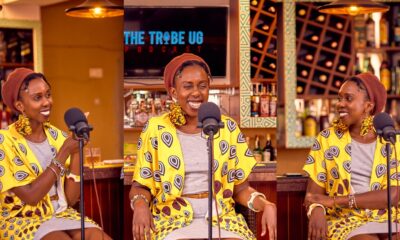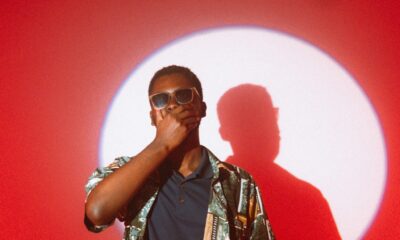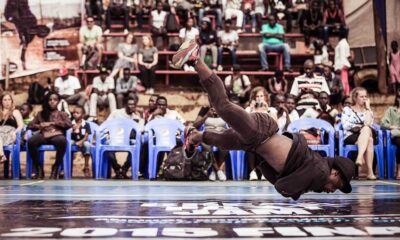FEATURES
INTERVIEW: The Tribe UG Chats With 1der JR.
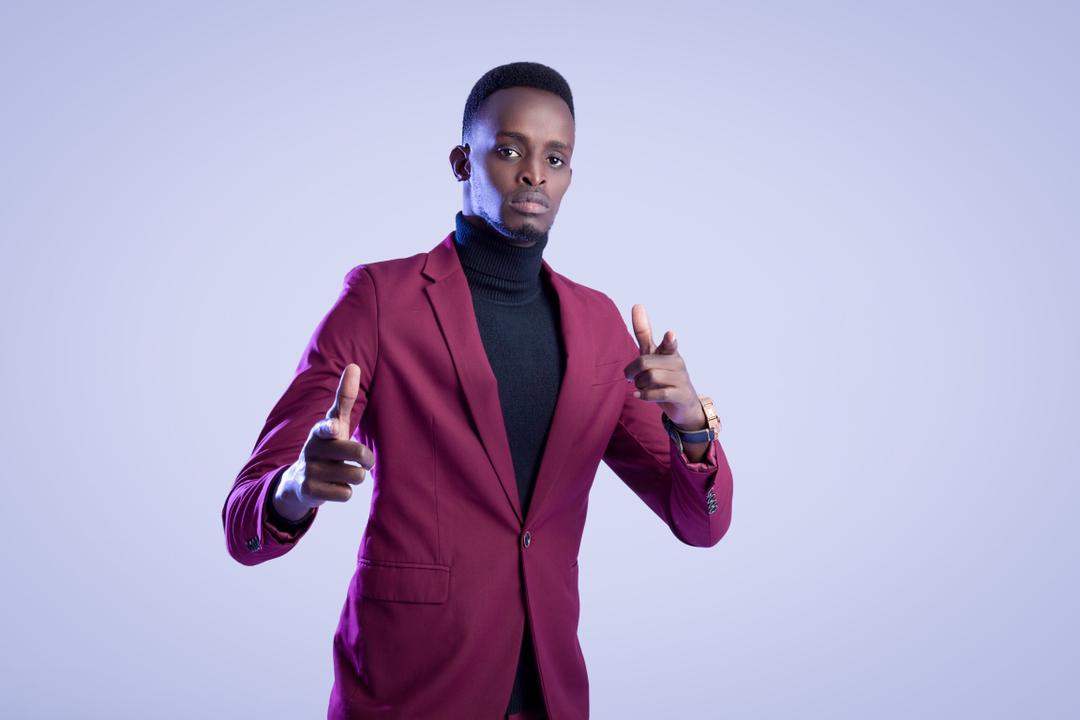
By Lezz (@LMLubowa)
Thriving in UG Hip-hop is a feat that continues to elude the majority of upcoming acts. It could be argued that some of these acts may not be good enough, while others may be in it for the clout, because when the real work is meant to start, they soon move on to other hustles before scratching the surface. The majority of the promising acts fail to capitalize on their momentum after garnering some buzz on social media following their first efforts. They soon settle for ‘mentions’ from their social media fanbase and never break out to the mainstream to explore their full potential. Also, could it be that these promising acts release music that does not resonate with the Ugandan context and only caters to a minority of their potential audience?
UG Hip-hop, just like the rest of the music industry worldwide, is cut-throat, and it takes hard work, dedication, persistence, failure, unlearning and re-learning to thrive in the long run. The Tribe UG has a chat with 1Der Jr, an upcoming hip-hop artist who tells us about his growing pains of consistent hard work, dedication and resilience in his quest to navigate the challenges in the UG hip-hop industry. Following his recent releases over the past couple of months that have garnered him much deserved attention, we have a candid chat with him about the state of UG hip-hop, the lessons he has learned and his future plans regarding music.
Who is 1Der JR?
I am Derrick Muhanguzi, and my stage name is 1DER JR. I would probably consider myself to be an effective communicator. I believe that my role in life is to speak on what I believe in, and I am grateful that music has provided me with a platform to effectively communicate my experiences in life. I consider myself a vessel of conscious vibrations which enable me to articulate what I believe in. However, music is but a fraction of what I am. There is more to me, but I consider music my safe space, and it is an essential part of my being.
So, what was the trigger point that made you decide to get into hip hop?
My music journey started out around 2009 when I was still in the UK. I met a couple of hip hop heads who nurtured me into the craft of writing rhymes and helped me understand the history and background of hip hop and music as a whole. In 2010, I started getting in the booth and dropping some bars. This experience made me a genuine fan of the art which made me invest quite a bit of time in learning how to express myself from an authentic standpoint.
Take us through how you left the UK and positioned yourself in UG hip-hop.
After sharpening my pen game in the UK and spending a couple of years there and trying to understand how to navigate that terrain, the time came I had to come back home. By the time I came back, I had started experimenting with Afro-beats having started out with the raw hip hop inspirations like Talib Kweli and the likes.
So, I came back in 2015 and started settling in. I had to understand the dynamics of how Ugandan music works. This has been the biggest challenge of my artistic career because it is a whole different ball game in Uganda. I came back home with so many big dreams of how to take over the industry, but when you come back home, they tell you, “Boss! First beat chill. This is not how things works.” This really messed with me from a depression/anxiety standpoint, and my expectations were stuttered.
What challenges have you faced in the UG hip-hop industry since you returned?
I think what is happening in UG hip hop indicates what is happening in the political landscape. The biggest challenge that we have is that we are battling mindsets. This trickles down from the top and how we have not publicized the craft enough to make people feel proud to be Ugandan and have that patriotic aspect about them. We are not owning up to who we are. As hip-hop artists, we are supposed to be like journalists who are products of our environment, but if we fail to embrace our origins, we cannot thrive authentically.
This mindset explains the hypocrisy of industry heads always bringing in Nigerian artists rather than embracing their own home-grown talent. It also explains why many upcoming are trying to sound like Nasty C without understanding the dynamics of SA hip-hop. Also, UG hip-hop ‘legends’ who have gotten some exposure through traveling the world are not contributing enough to enlighten and mentor upcoming acts on being authentic and thinking long-term. Therefore, I believe it is a mindset issue that we are battling in the industry.
Based on this mindset issue that you are trying to allude to, do you think the listeners are not proud of their own or its you the artists who are not putting in the work to give us authentic music?
I think it goes both ways. I have to admit that most creatives are not putting in the necessary work, but other stakeholders like The Tribe UG are not doing enough to enlighten them on how to up their game. Much as the artists may not be putting in work, you guys (The Tribe UG) are not doing what you are supposed to be doing.
What are we (The Tribe UG) supposed to be doing in your opinion?
? [Crickets]
Lil rant begins:
Personally, I got to a point where I felt like I am not going to need anyone for now because no one is going to catch up to the speed that I am coming at. I am going to be consistent with my craft and whoever comes along will come along. I believe in my ability; I believe I am futurist and I have not even done half the things that I think in my head. Uganda is still a virgin territory for me to cling onto people when I can use digital platforms to do the best I can. Like I told I am communicator and it is very difficult to box me. You put me in one box, I come out the other. I am very good at communicating ‘efficaciously’.
End of Lil rant (Back to regular scheduled programming)
Both ends have lacked professionalism, especially from the guys who claim to be organizing and putting people together. There is instead a very short-sighted approach from the way you guys approach this thing.
Ssebo, could you please elucidate on these strong sentiments?
A couple of years back, I had a chat with Felix (Team Lead – The Tribe UG) at Sanyu FM about how UG hip-hop is very ‘cagy,’ which is a very short-sighted approach. We cannot deny how young the industry is, and I admire how the young kids in the game are creating their own systems that are moving their own product. They have noticed that they can decentralize the whole system and make their own noise that will become economically viable.
Therefore, much as the artists may not be putting in the work to push their craft, the whole establishment (The Tribe UG) is not doing what you are supposed to be doing. You are not sitting down with creatives to understand what is going on. You have adopted that ‘cagy mentality.’
PS: The cagy mentality means that people who have been in the industry for a bit are not welcoming to the new acts.
How do we solve this issue?
I think let’s first fundamentally understand that hip-hop is suffering in this country, and this should inform both The Tribe UG and the upcoming artists that we need to do ten times more work from a collective standpoint. This genre should be the most appreciated, but it turns out to be the most slept on.
Why is UG hip-hop slept on?
This is because most artists do not make music that resonates with our context and the various social classes in our country. In hindsight, I am grateful for my growing pains over the past five years. That struggle taught me many things. For instance, my approach is now “omuntu wa wansi.” I can make music that both an intellectual and a Rolex guy can vibe to. I can also make Luganda, Runyankore and English sound the same. This is because of the work put in over the years. I came back to Uganda when I could not even speak Luganda and Runyankore properly, but now I can put all those elements in the music and make them sound like that Sarkodie-type of vibe if I wanted to. These are all experimental things that I am still trying to figure out, but it is authentic, and it can resonate more within our context..
Since time immemorial, the biggest challenge with most UG hip-hop artists is that we are always trying to speak on things that are out of our context. They are always trying to talk about things they don’t own and places they have never been to. This comes back to the mindset issue where most of us are not proud to be Ugandan, so we are trying to draw inspiration from other countries. Such music does not resonate with the majority of people who have not been exposed to those cultures.
As hip-hop artists, we need to understand that we ought to reflect on where we come from. We need to learn to portray our authentic experiences to communicate our stories and those of our communities. If your own block does not understand you, do not expect other people to relate to your music. We need to stop trying to emulate guys who represent different geographical vibes. Most of us are not making music from an authentic standpoint which explains why we fail to thrive and never experience longevity.
Does this mean that cultural appropriation is the main reason UG hip-hop has failed to thrive?
Yes. The majority of the audience cannot relate to what most of these hip-hop artists are talking about. We need to find ways to apply our art that resonates with the people we try to communicate with at home. We live in a country that people are not proud to associate with, but as a hip-hop artist, I feel like I have to be patriotic, and I am proud to be Ugandan. With this mentality, I can embrace the positive aspects of my society and talk about the negative elements to capture the listeners’ attention to appreciate the various facets of our society.
How then do we help upcoming acts stop mimicking Western artists and start making ‘authentic’ music?
When you look at artists like Fefe Bussi, Fik Fameica and the likes, these are rappers who are making numbers in the industry. This shows that the normal Ugandans want to associate; they want to feel proud to be represented from an artistic standpoint. However, most UG hip-hop artists are not necessarily proud of being Ugandan which explains why they draw inspiration from other geographical locations. I keep meeting many kids who are excellent rappers but unfortunately, they will not go any further because their approach to the industry is flawed.
Therefore, we have to be proud of where we come from before we can genuinely put out art that is authentically about us. As the whole UG hip-hop industry, we need to acknowledge that we are in the business of enlightening people about the perks of being Ugandan while accepting how to overcome our struggles. Ugandans need to feel proud enough of their country, and we can use hip-hop to educate the masses that being Ugandan is an enormous privilege.
So, in a nutshell what inspires your craft?
I want to create a platform that inspires people to genuinely appreciate our stories as Ugandans. I intend to push the envelope further such that other upcoming acts can follow suit and start making authentic Ugandan hip-hop that easily resonates with the masses. Basically, I want to create content that challenges the consumer to be better at what they do, whether a fellow artist or a farmer upcountry.
Of late you have been posting inspirational clips on your Instagram. What is inspired you to start doing them and how have your followers/fans received them?
Like I told you, music is only a fraction of who I am, and I like communicating. I am not good with small talk, but when I engage with people, I do it from a deep standpoint. I am also a person who has struggled with mental health issues and depression, and the best way of dealing with some of these issues is by speaking on them. So, I found it fit to use my ‘communicator skills’ to talk about these issues that make most people in our society uncomfortable due to their stigma. This is what inspired me to start doing those clips. To be honest, these conscious clips have made my music move more quickly. They have actually moved more than the music. They have been shared a lot and they are relatable to many people since I am constantly switching up between Runyankore, Luganda and English.
Over the last couple of months, you have been releasing singles from which have experimented and gained critical acclaim from the UG hip-hop heads. When do we get a full project?
At the moment, I am trying to make as much noise as I can, but for my debut album, I want to create something Ugandan. I want to create content with people who are willing to fund this project, like Uganda Tourism Board (UTB), where we go and explore Uganda and the stories it has to offer. I have actually started the project, but it is in its infancy. I want something on a grand scale that can have a documentary attached to it. My goal is to make music that appeals to both ‘omuntu wa wansi’ and the intellectuals to be proud to be Ugandan. I want people who listen to the album to question the norm of under-looking our heritage.
What collaborations should we expect on this upcoming project?
I am not yet sure who I will collaborate with, but all I know is that I intend to have a traditional touch, so I am thinking of collaborating with cultural groups from all over the country. So, I think the majority of the collaborations may be unknown to the mainstream. I am mainly looking for diversity for this project, especially from people who represent where they come from, like Byg Ben, some of the folks from Bantu vibes, and Jim Nola.
Being a conscious rapper, which MCs do you look up in the UG hip-hop industry and why?
I look up to the legends that paved the way for us, like Navio, The Mith and Babaluku. We looked up to them when we were younger, so I feel like they inspired most of us to pursue this music thing. Had they not thrived in the past, I don’t think I would be rapping today. For the upcoming artists, I’m particularly drawn to Luga flow artists like Jim Nola. I like how he pieces his words together. I think he is a genius.
As we wrap up, do you have any advice for the newcomers?
My advice to the kids aspiring to take on hip-hop is to be patriotic and proud about their origins. That will give them an authentic motivation to take on music rather than chasing fame. If they are proud to be Ugandan, they will be able to put in the research to push their craft in a direction that resonates with majority of the listeners.
ARTICLES
REVIEW: Kohen Jaycee – RWEBEMBERA – A Full Course Meal!
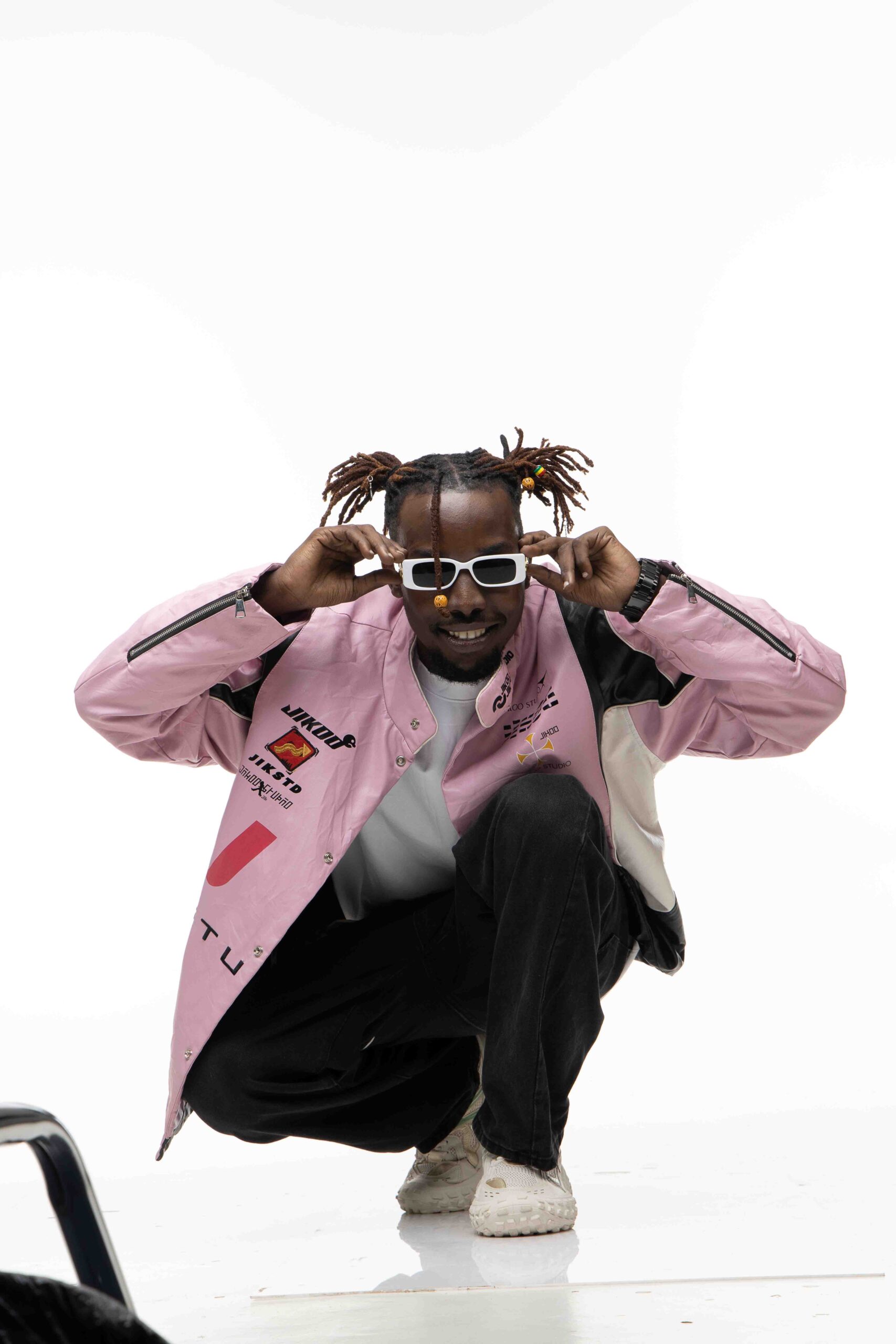
Sometimes, you go out to eat, not because you’re hungry, but because you’re looking for a nice fine dining experience. You pick the ideal restaurant, and you hope they do not disappoint. You know the chef is top tier, and once you look at the menu, you’re spoilt for choice. The ambiance is right, the service is great, so you go ahead and place your order. As you wait, the anticipation eventually leads to hunger. You’re ready! It gets even worse as they bring out the cutlery, the salt, the pepper… And then you see the waiter bringing out your plate – bliss, relief, eagerness, FOMO! And finally, you dive in…
This is how I felt in the build-up to Kohen Jaycee’s “Rwebembera” album. The rollout was right, the push was visible, the dates were set, the tracklist was released and we were certain that we were in for a masterpiece. Chef Kohen Jaycee had cooked up a full-course meal and we were ready to be served.
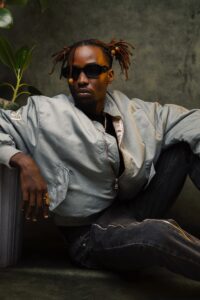
At the end of September 2023, Kohen Jaycee dropped the first single off the album. “Ability” was the warning shot, and we should have taken it more seriously. We loved the song, as one would expect from a Kohen x Axon collaboration, but we might have underestimated the level of work being done in the background.
In May 2024, Kohen Jaycee released his second single off the album “After 10:30”, reminding us of his range and ability to go from love ballads to break-up songs, all the way to straight “Kidongo Business”. Finally, in August 2024, a couple of weeks before the album dropped, Kohen Jaycee dropped his third single off the album, “Dancé” featuring Cxnrvd, Nutty Neithan, and Denesi. Given the title, the vibe is self-explanatory, and boy, have we danced to it since then.
When I said Kohen Jaycee had been in the kitchen and that he was a top-tier chef, understand that these first three singles, however nice they were, could not have prepared us in any shape or form for what we were yet to listen to. They were simply tasteful and delightful appetizers that were meant to get us ready for the main course. Rwebembera was released on 30th August 2024 and had several eye-catching legendary features such as Maurice Kirya, Azawi, Elijah Kitaka, Levixone, A Pass, Navio, and Keko. Kohen made sure to include some of our favorite rising stars like Akeine, Lagum The Rapper, and Kenya’s Maya Amolo to round off the collaborations on the project.
If you’ve been paying attention to Kohen Jaycee’s music, the first thing you will notice is that he started the Rwebembera album exactly how he ended his WENA II EP. Yes, the “Ninyowe Rwebembera (intro)” is an extract from the ending of “Look My Way” featuring Abaasa, which is the last song on WENA II. That alone shows us the amount of thought that goes into the work that Kohen puts into his projects. It’s all connected, and we are here for it!
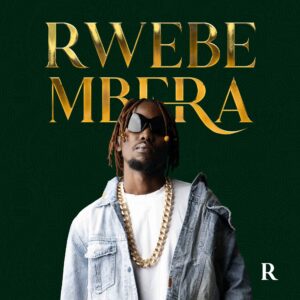
He then proceeds to take us through the inspirational phase of the album, giving us Ability, which is followed by “The way” featuring Levixone. He goes ahead to remind us that he is on a journey that started a while back, letting us know that he (RWEBEMBERA) is here for us on “Nva Wala” featuring Maurice Kirya. This story continues with “Rulendere” which is a tribute to his grandmother, where Kohen refers to a folk song that she used to sing to him. A song that tells us that he has found something precious. It is only right that this phase is closed off with “Tell Me More(Theodore’s Interlude)” which is a song for his son, because there is nothing more precious than the love he has for him.
The album then shifts as Kohen takes us into a celebratory mood. If you aren’t dancing to the next few songs, then you have not passed the vibe test. Kohen turns up the heat, giving us “Gundeze”, “Dancé”, “Byoyagala” featuring A Pass, “Oboniire” featuring Lagum The Rapper, and “After 10:30”. Back to back fire, simply because he can. This phase is closed off with a super feature, as Kohen Jaycee gives us “Endagililo” featuring Azawi, further highlighting the fact that chef Kohen was serving a full-course meal cooked with the finest ingredients.
The third and final phase of the album is probably my favorite. Kohen Jaycee activated RnB beast mode giving us “Night like this” featuring Kenya’s Maya Amolo and UG Hip Hop great, Navio. The RnB was so contagious, that Navio started his verse singing too. He then gives us “Weekend” featuring the legendary Keko, which makes it back-to-back epic RnB- Hip Hop collaborations!
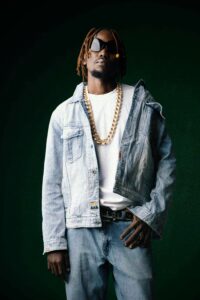
His RnB prowess is further shown on probably my two favorite songs on the album, “Wanting You” featuring Elijah Kitaka and “Bwoba Ompulira” featuring Akeine. Top-tier songwriting magic was shown in these songs. From melodies to structure, arrangement, style, vocals… ABILITY!
Kohen Jaycee finally sends us off with his outro “The Raising Echoes” where he sings along to a folk song with his Mother. The perfect farewell after this 18-track journey. The album as a whole is Kohen stepping into the Rwebembera shoes, a name that has been handed down for generations in his family. A name he has had to earn. He opened up, he shared, he was vulnerable, he had fun, he put himself in our shoes, and allowed us to take a walk in his too. This is why we can all “Sing” together, and say Ninyowe Rwebembera.
Stream RWEBEMBERA HERE
ARTICLES
An Introvert’s First Dive into Blankets & Wine.
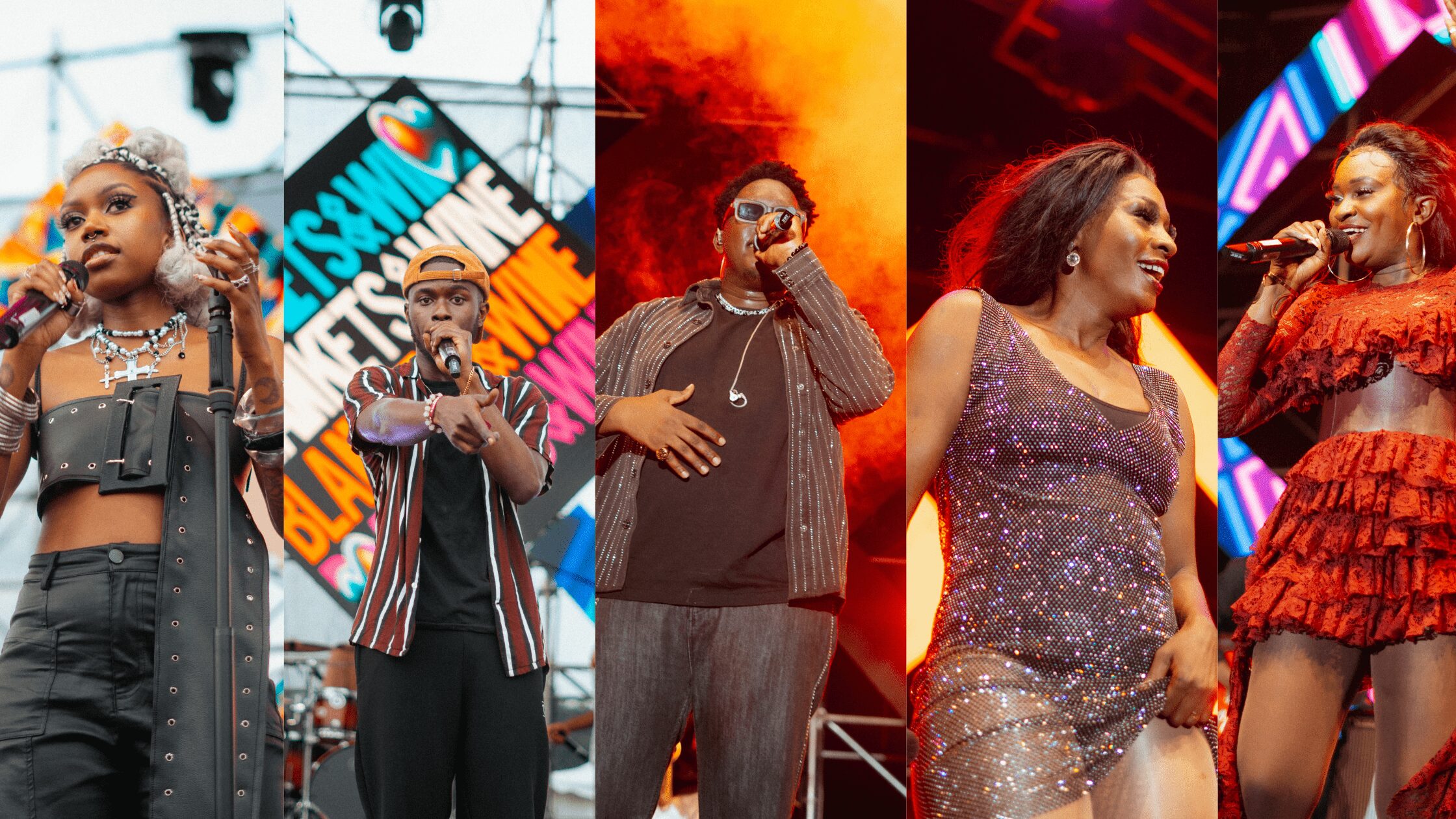
By Ziyal Amanya (@ziyalogy)
I’ve notoriously found sneaky ways to avoid Kampala’s outdoor events, especially during the daytime. The idea of navigating crowds or ‘having to fit in’ kept me at home or at more intimate gatherings. However, this past Sunday, a surprise invitation and curiosity led me to attend my first Blankets and Wine.
Turns out, Blankets and Wine is more than just a music festival. It’s also a bit of a communal gathering—think of a happy village square. This edition’s crowd felt just right, with revelers casually strolling around, lovers holding hands, friends lost in animated banter, and cocktails disappearing almost as quickly as they were poured. Both stages, positioned at opposite ends of the grounds, drew sizable attention, but what really caught my eye was how it felt like a hangout for artists, lovers of live music, and art. They mingled in groups, and it wasn’t uncommon to find yourself sharing jokes over drinks with the very voices that dominate your playlists.

Mootownoh on Stage. © Jamie Empire/The Tribe UG
The afternoon kicked off with performances by Andereya Baguma and Mootownoh. Despite their different genres—Andereya is a singer, while Mootownoh is a rapper—they both have cultivated growing fanbases and significant support. Their fans sang along to every line, joined in on the performances, cheered them on, and seemed genuinely happy for them, almost as if they were watching a friend up there. It’s been clear for a while that what sets the new wave acts apart is their approach to collaboration and community. They seem to be having a lot of fun creating together, focusing on the art rather than just commercial success.
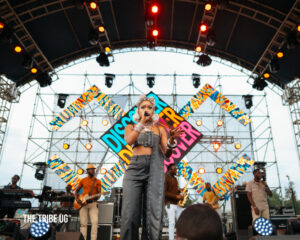
Karun on Stage. © Jamie Empire/The Tribe UG/Skyline Media & Management Limited
Regional artists also graced the stage, bringing along their unique sounds. Karun from Kenya performed, formerly part of the hip-hop group Camp Mulla, who were a continental big deal about a decade ago. She’s been making impressive music as a solo artist, but the crowd here seemed unfamiliar with her work. It made me think about the challenges artists face when breaking into neighboring scenes. Despite this, Karun delivered a soulful performance, and I hope that earned her some new fans. Kivumbi King from Rwanda followed, and I thought it’d be interesting hearing him collaborate with The Homie.
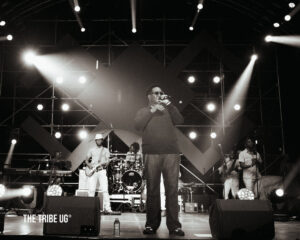
Joshua Baraka on Stage. © Jamie Empire/The Tribe UG/Skyline Media & Management Limited
As the night progressed, Joshua Baraka took the stage, delivering several captivating minutes of what he called The Braka Jam Session—a set that kept the crowd literally insane with happiness, even with Kampala’s unpredictable weather. Baraka is evidently a favorite among the new crop of artists. Yes, he’s definitely charmed his way up, but his talent is undeniable. Interestingly, while Baraka was performing hits that have garnered nearly 500,000 monthly streams, his partner DJ Etania was on the other stage, delivering a fiery set of her own. Talk about couple goals.
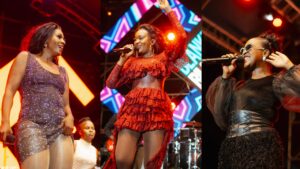
Blu*3 on Stage. © Jamie Empire/The Tribe UG/Skyline Media & Management Limited
The highlight of the evening came when Blu*3 reunited on stage! The nostalgia! Not even the rain could dampen the moment! They started with solo performances—Lilian Mbabazi exciting us first, followed by Jackie Chandiru, still as energetic as ever, and then Cindy Sanyu, the “King” herself, right before they hit the stage together as the full group.
They ran through their catalog—though only a portion, as they have so many classics. The chemistry among the trio is still strong, and their closeness after all these years is evident. Standing there, awkward on the outside but having the time of my life on the inside, it hit me how much impact these three women have had on our music scene since their debut on Coca-Cola Popstars. Bands like Blu3 have shaped the urban sound we enjoy today, from songwriting to style. Performing “Nsanyuka Nawe” felt like a homage to themselves, one another, and their collective journey—the highs, the lows, and everything in between. I keep saying it’s sad how little we have done with the treasure trove of beautiful stories in our entertainment industry because… how do we not have a Blu3 documentary or book yet? Their story is one worth telling!
Blu*3 ended their set with the surprise appearance of Navio, joining them on their hit “Wind It Up.” Like I said, friends hang out.
Sun-El Musician and Simmy then took over, transitioning us into a lively rave with their house beats and immersive effects. It’s impressive to see such a dedicated house music fanbase in Kampala, or am I just late to the party? Amapiano has also been a significant part of Kampala’s nightlife, with DJs like Etania making a name for themselves in this genre. Sun-El and Simmy have smooth chemistry, and she kept the crowd engaged, though not effortlessly. Simmy playfully remarked that fans weren’t giving her the energy she’s used to—I guess from her obviously more energetic crowds back home. I think we were all a bit exhausted by that point.
Over at the DJ stage, talents like AO The Walker, Em That Guy, Flo Moon, Etania, Masaka Masaka, and R3ign Drops kept the energy alive throughout the day.
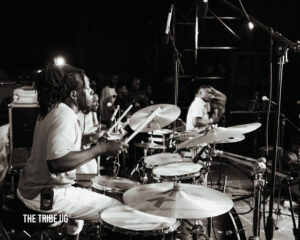
AKA Dope Band on Stage. © Jamie Empire/The Tribe UG/Skyline Media & Management Limited
AKA Dope band backed the lineup of artists. I recall past experiences at events where live bands were, to put it mildly, less than stellar—often off-key and just not quite it. But I was genuinely blown away by how tone-perfect and on-point this band was. They played flawlessly for hours and kept up with the diverse styles of each performer.
Blankets and Wine might be where artists and fans mingle freely, where lines between performer and audience blur, but it’s also a great way to confront your social anxiety, take risky fashion decisions, and pretend that dancing terribly is a form of artistic expression.
The next edition of Blankets and Wine is scheduled for December 15, 2024.
ARTICLES
Afro B Unleashes Cross-Continental Vibes in New Single & Video ‘Wo Wo Wo (Ebony)’
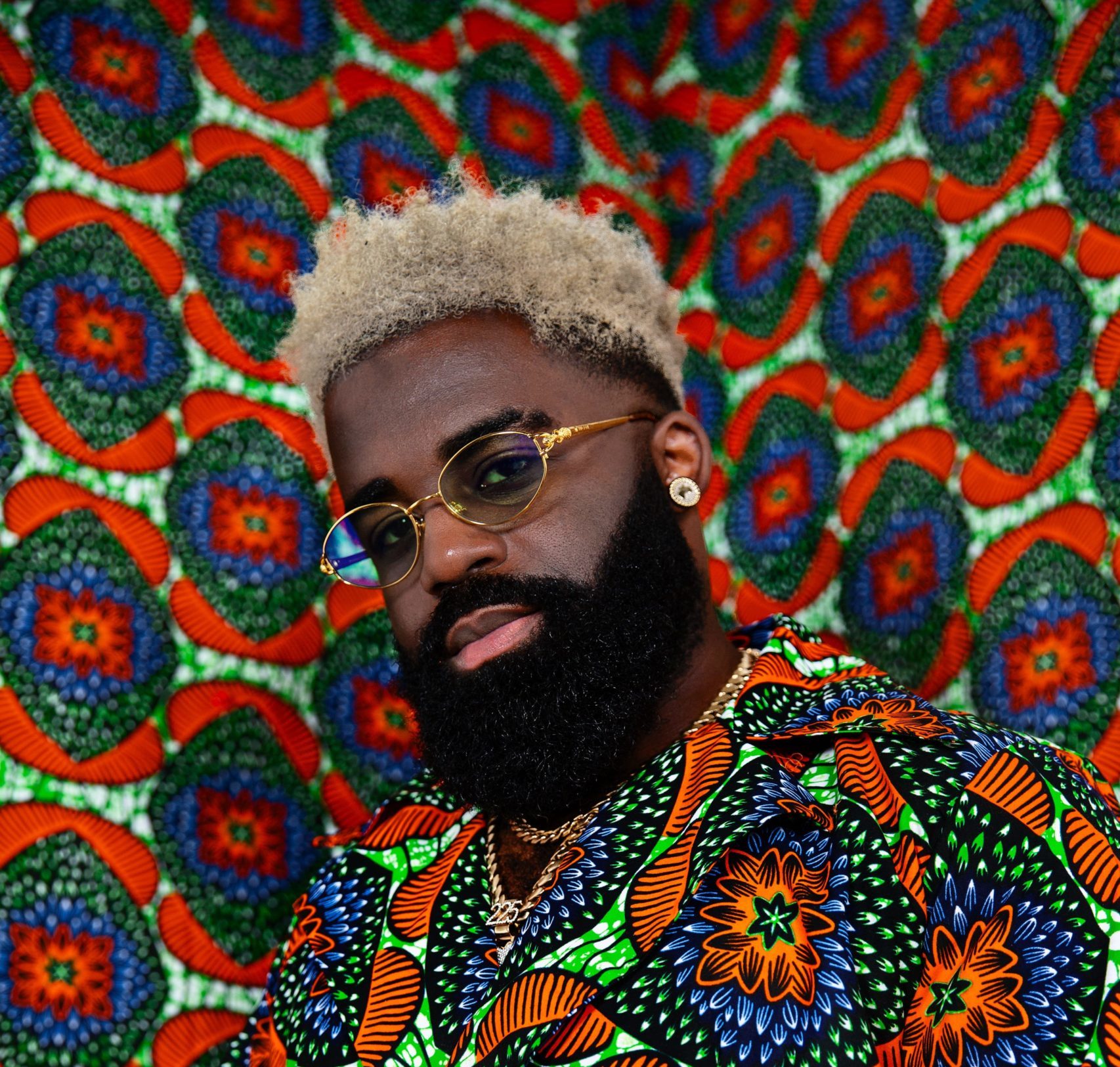
Afro B, the trailblazing artist known for his viral hit “Drogba (Joanna),” is back with a bang, unveiling the much-anticipated music video for his latest single, “Wo Wo Wo (Ebony).” This international collaboration features US trap sensation Rich The Kid and UK rap heavyweight Rimzee, making it a cross-continental musical extravaganza that is sure to captivate audiences worldwide.
Widely regarded as the pioneer of Afrowave and Afrobeats, Afro B infuses influences from the Caribbean and Latin America with traditional African elements. The result is a unique blend of hip-hop and dancehall that creates a captivating and infectious sound. With his breakout hit, “Drogba (Joanna),” amassing over 350 million streams in 2018, Afro B has firmly established himself as a force to be reckoned with in the global music scene.
In “Wo Wo Wo (Ebony),” Afro B collaborates with US trap sensation Rich The Kid and UK rap heavyweight Rimzee, creating a fusion of styles that adds an extra layer of dynamism to the track. The music video promises to be a visual feast, complementing the infectious beats and showcasing the trio’s musical chemistry.
Afro B’s musical prowess has earned him recognition from top-tier platforms such as Billboard, BET, BBC Radio 1, Capital, Hot 97, Power 105, The Fader, Rolling Stone, and NME. The success of his previous collaborations with artists like Wizkid, Slim Jxmmi (Rae Sremmurd), DJ Snake, and Sukihana has solidified his status as a global music sensation.
“Wo Wo Wo (Ebony)” is a continuation of Afro B\’s signature style, blending punchy rap lyrics, his silky vocals, and a melodic instrumental crafted by ATG (known for his work with Burna Boy, Kelly Rowland, and Darkoo). The single serves as a tantalizing preview of what Afro B has in store for 2024, promising more of the infectious beats and cross-cultural collaborations that have become his trademark.
With the release of “Wo Wo Wo (Ebony)” and its accompanying music video, Afro B continues to push boundaries and showcase the power of cross-continental collaboration in the world of music. As we eagerly anticipate what 2024 holds for this Afrowave pioneer, one thing is certain – Afro B’s influence on the global music scene is only set to grow stronger.
-
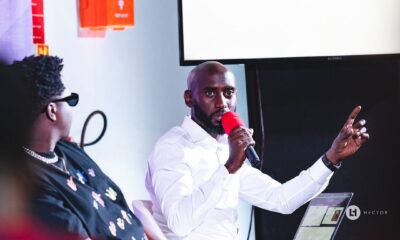
 ARTICLES6 months ago
ARTICLES6 months agoElevate Your Music Career: Join AUMEX’s Essential Branding and Marketing Masterclass
-
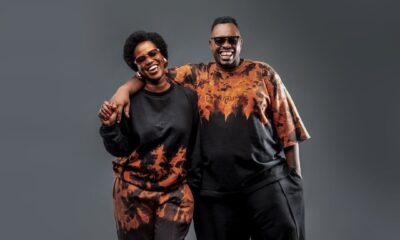
 ARTICLES6 months ago
ARTICLES6 months agoBrian Babu and Regalia Apparel Launch Unisex ‘Uwili’ Capsule Collection
-
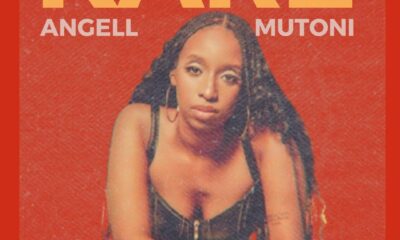
 ARTICLES4 months ago
ARTICLES4 months agoAngell Mutoni Drops Bold New Single “Kare” Ahead of Debut Album
-

 ARTICLES4 months ago
ARTICLES4 months agoKJ Spio, Harmonize & Konshens Unite for ‘Messi
-
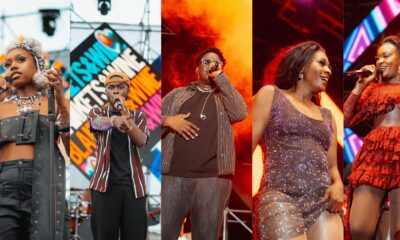
 ARTICLES6 months ago
ARTICLES6 months agoAn Introvert’s First Dive into Blankets & Wine.
-
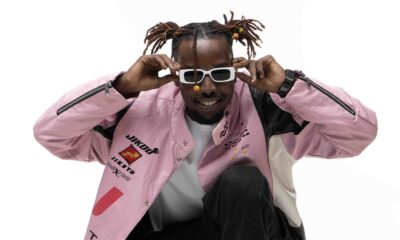
 ARTICLES6 months ago
ARTICLES6 months agoREVIEW: Kohen Jaycee – RWEBEMBERA – A Full Course Meal!
-
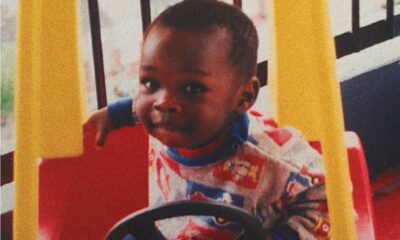
 ARTICLES4 months ago
ARTICLES4 months agoBreaking the Mold: GrG’s Tumenya Mateeka.
-

 ARTICLES7 months ago
ARTICLES7 months agoSpotify Masterclass Debuts in Uganda: A Game-Changer for Local Music and Artists.





